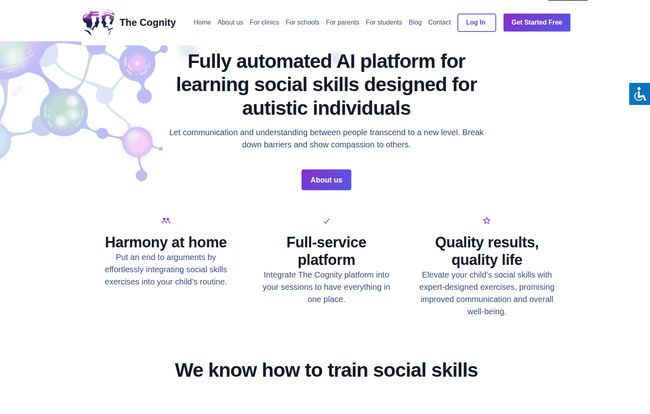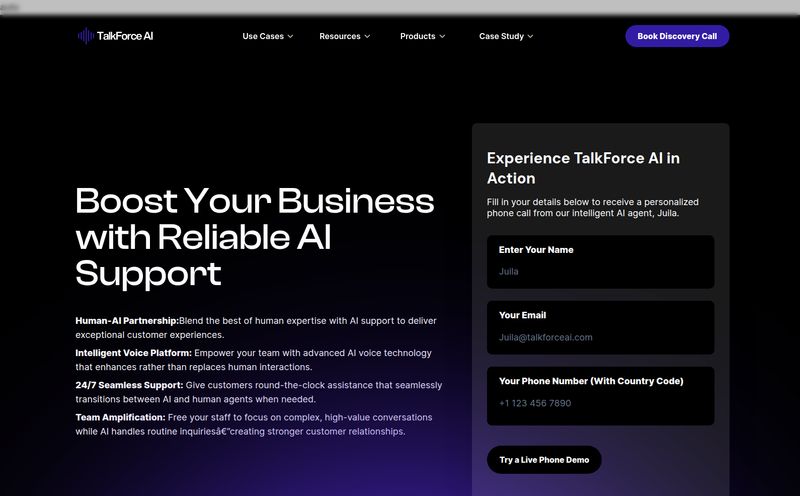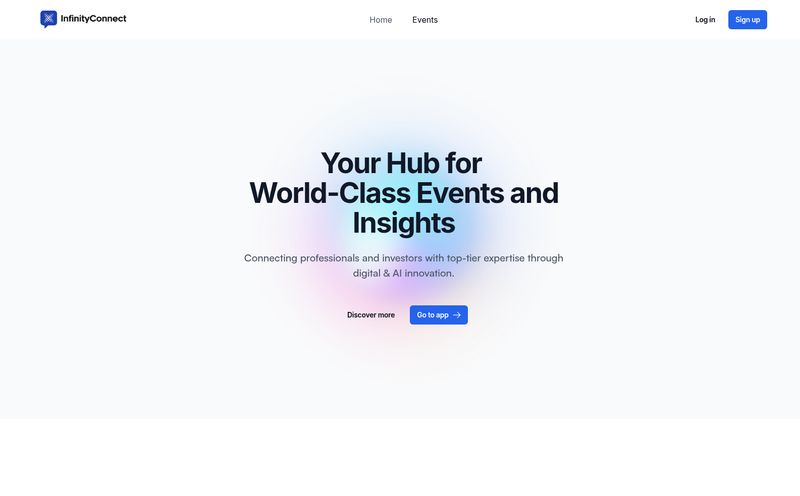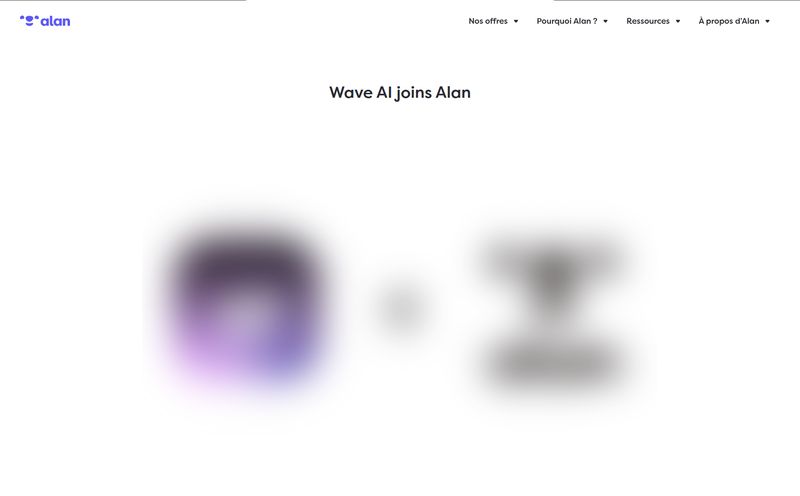Alright, let’s have a real chat. In my years of swimming in the deep end of the SEO and digital trends pool, I’ve seen a lot of AI tools promise the world. “Revolutionize your workflow!” “10x your output!” Most of it is just marketing fluff wrapped around a slightly clever algorithm. But every so often, something comes along that makes me lean in a little closer. Something that isn't just about efficiency, but about... humanity.
That's the feeling I got when I stumbled upon The Cognity. It’s an AI platform designed to help autistic individuals learn and practice social skills. My first thought? Skepticism. My second? Intense curiosity. Social skills are messy, nuanced, and deeply human. Can a machine really help with that? Let's dig in and see what's under the hood.
So, What Exactly Is The Cognity?
Let's clear one thing up right away: This isn't a robot therapist designed to replace human connection. Thank goodness. Instead, think of The Cognity as a kind of smart mirror for communication. It’s a platform where a person can practice social interactions and get instant, non-judgmental feedback on things we often take for granted. We're talking about the words you choose, your tone of voice, your facial expressions, even the level of empathy you're conveying.
It was apparently developed with a whole team of experts from the US, Poland, and Switzerland, which gives it some serious credibility right out of the gate. The goal isn’t to create robotic, “correct” social interactions, but to help break down barriers and build a bridge of understanding. A pretty noble goal, if you ask me.
The Big Idea: How It Works in Practice
The whole process seems refreshingly straightforward. It’s not some ridiculously complex system you need a PhD to operate. The website breaks it down into a few simple steps. You sign up, get access to some theory (because context is king), and then you jump into practical exercises. This is the core of the platform.
I like to think of it as a flight simulator for social situations. Before a pilot flies a multi-million dollar jet, they spend hours in a simulator. They can crash a hundred times with zero real-world consequences. They learn the controls, get comfortable with the feedback, and build muscle memory. That's what The Cognity aims to be. A safe, private space to practice, get AI-driven feedback, and build confidence before taking those skills out into the world. It’s a pretty brilliant analogy, even if I do say so myself.

Visit The Cognity
For Therapists: Your New AI-Powered Assistant
Now this is the part that really caught my eye. The Cognity includes an administration platform specifically for therapists. This is a big deal. For years, therapeutic progress has been tracked through session notes, subjective observation, and self-reporting. All valuable, but all... well, a bit analog.
The admin panel lets a therapist or a coach see what's happening behind the scenes. They can assign specific exercises, monitor progress with actual data, and see where a student is excelling or struggling in real-time. Imagine being able to see that your client is nailing the verbal part of a conversation but their facial expressions aren't quite matching their intent. That’s a specific, actionable insight you can work on in your next session.
This isn't about AI taking over; it's about giving human experts better tools. It's like giving a master carpenter a laser level. They still have all the skill and intuition, but now they have a tool for incredible precision. It helps make therapy more effective and definately more data-informed.
The User’s Side of the Screen
For the individual using the platform, the main draws are personalization and privacy. The learning journeys are customized, meaning it adapts to your specific needs. You’re not just going through a generic, one-size-fits-all course.
But the bigger piece, I think, is the emotional safety of it all. Practicing social skills can be incredibly vulnerable. The fear of saying the wrong thing, of being judged, of just plain not getting it is real. An AI, for all its faults, is not going to get impatient. It's not going to roll its eyes. It provides clear, consistent feedback without any of the emotional baggage that can sometimes come with human practice partners. It creates a space to fail, and failure is where all the best learning happens.
Plus, there's the sheer convenience. You can do this at home, on your own schedule. No need to coordinate appointments for this specific type of practice. That flexibility lowers the barrier to entry significantly.
The Good, The Caveats, and The Realistic
No tool is perfect, and it's my job to be a bit of a critic. So let’s break down the pros and the potential hiccups in a real way.
The Genuinely Good Stuff
The personalized AI feedback is the star of the show. It’s the kind of granular, immediate input that's nearly impossible to get otherwise. The platform's design looks clean and intuitive, which is crucial for engagement. And the fact that it's designed as a tool for therapists, not a replacement, shows a deep understanding of the therapeutic alliance. It's a smart, thoughtful approach.
The Realistic Caveats
Okay, so what are the downsides? The website itself doesn't list any, but we can read between the lines. First, you obviously need a decent internet connection and a device with a camera/mic. That’s a potential accessibility issue for some.
Second, this isn't a magic wand. Its effectiveness is going to depend entirely on consistent use. You have to show up and do the work, just like with a gym membership. Buying the tool isn't the same as using it.
The biggest philosophical question is the potential for over-reliance on technology for what are fundamentally human skills. Some might argue that practicing with a machine misses the point. And that’s a fair critique. But I see it differently. I see this as a training tool, a support system. You use the simulator to get ready for the real flight—you don't stay in the simulator forever. The goal is to build skills that you then apply with real, live, unpredictable people.
What's the Price Tag on The Cognity?
Here’s the million-dollar question. I went looking for a pricing page, and... nothing. It’s one of those “Contact Us for a Quote” situations. While that can be a little annoying as a casual browser, it actually makes sense for this kind of B2B/B2C hybrid platform.
The pricing for a large clinic or a school district is going to be wildly different from that for an individual parent or user. By hiding the pricing, they're encouraging you to get in touch so they can figure out a plan that fits. So, if you're interested, you'll have to reach out to them directly. Don't be shy; they have a form right on their homepage.
FAQs about The Cognity
I can already hear the questions bubbling up, so let's tackle a few common ones.
Is The Cognity a replacement for a human therapist?
Absolutely not. It’s designed to be a supplemental tool used alongside, and often guided by, a professional therapist, educator, or coach. It provides the practice; the therapist provides the wisdom and human connection.
Is it suitable for all ages?
The platform appears to be designed for teens and adults, but this is a great question to ask their team directly. The communication exercises might be adaptable for different age groups depending on the therapist's guidance.
How does the AI know if I'm being “empathetic”?
This is the secret sauce. The AI is trained on massive datasets of human interaction. It learns to identify patterns in tone of voice, facial micro-expressions, and language choices that humans associate with empathy. It's not feeling empathy, but it's recognizing the signals of it.
Was this developed with autistic people's input?
The site emphasizes its development with experts from various fields. In the world of neurodiversity, the principle of “nothing about us without us” is paramount. While not explicitly stated, one would hope and assume that autistic consultants were a key part of that expert panel to ensure the tool is genuinely helpful and respectful.
Is my data private and secure?
This is a critical question for any health-related technology. The Cognity has a Privacy Policy and Data Retention Policy linked at the bottom of their site. Like with any digital tool, it's always smart to review those policies to understand how your information is being handled.
My Final Thoughts
Look, the world is full of tech that disconnects us. It's rare to find a tool that feels like its core mission is to do the opposite. The Cognity is a fascinating piece of neurodiversity technology. It's not a cure-all or a magic pill, but it is a powerful, innovative tool that could provide immense value in the right hands.
By giving individuals a safe place to practice and therapists a sharper set of insights, it has the potential to help foster communication and build confidence. And in a world that could always use a little more understanding, that’s a mission I can get behind.
Reference and Sources
- The Cognity Official Website: https://www.thecognity.com/
- Autism Speaks, Technology for Autism: https://www.autismspeaks.org/technology-and-autism



